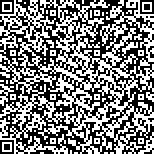| 摘要: |
| [摘要] 目的 探究灯盏花素联合阿司匹林治疗对急性缺血性脑梗死(AIS)患者临床症状及血清炎症因子的影响。方法 选择2014-09~2016-09收治的96例AIS患者为研究对象,依入院顺序分为两组,各48例。两组均给予常规治疗。对照组在常规治疗基础上给予阿司匹林治疗,观察组在常规治疗基础上给予灯盏花素联合阿司匹林治疗。两组均治疗4周,对比两组临床疗效、治疗前后血清炎症因子及美国国立卫生研究所脑卒中评分表(NIHSS)评分。结果 观察组临床疗效优于对照组,差异有统计学意义(P<0.05);两组治疗后血清肿瘤坏死因子α(TNF-α)、白细胞介素-6(IL-6)水平均较治疗前有所下降,观察组下降幅度大于对照组,差异有统计学意义(P<0.01);治疗后观察组NIHSS评分低于对照组,差异有统计学意义(P<0.01)。结论 灯盏花素联合阿司匹林能够显著改善AIS患者临床症状,降低其血清炎症因子水平。 |
| 关键词: 急性缺血性脑梗死 阿司匹林 灯盏花素 临床症状 血清炎症因子 |
| DOI:10.3969/j.issn.1674-3806.2018.07.22 |
| 分类号:R 743 |
| 基金项目: |
|
| Effects of breviscapine combined with aspirin on the clinical symptoms and serum inflammatory factors in patients with acute ischemic cerebral infarction |
|
WANG Fu-jiu
|
|
Department of Neurological and Cerebrovascular Diseases, the People′s Hospital of Shenqiu County, Henan 466300, China
|
| Abstract: |
| [Abstract] Objective To investigate the effects of breviscapine comined wih aspirin on the clinical symptoms and serum inflammatory factors in patients with acute ischemic cerebral infarction(AIS). Methods 96 patients with AIS in our hospital from September 2014 to September 2016 were enrolled in this study. They were divided into two groups according to the order of admission, with 48 cases in each group. Both of the two groups received the routine treatment for AIS. Besides, the control group was given aspirin, and the observation group was treated with breviscapine plus aspirin for 4 weeks. The clinical efficacy, serum inflammatory factors and the National Institutes of Health Stroke Scale(NIHSS) scores were compared between the two groups before and after treatment. Results The total effective rate of the observation group was higher than that of the control group(P<0.05). After treatment, the serum levels of tumor necrosis factor alpha(TNF-alpha) and interleukin-6(IL-6) were decreased in both of the two groups compared with those before treatment, but the improvement of the observation group was better than that of the control group(P<0.01). After treatment, NIHSS scores of the observation group were lower than those of the control group(P<0.01). Conclusion Breviscapine combined with aspirin can significantly improve the clinical symptoms and reduce the levels of serum inflammatory factors, and has remarkable clinical efficacy in the patients with AIS. |
| Key words: Acute ischemic cerebral infarction Aspirin Breviscapine Clinical symptoms Serum inflammatory factors |

